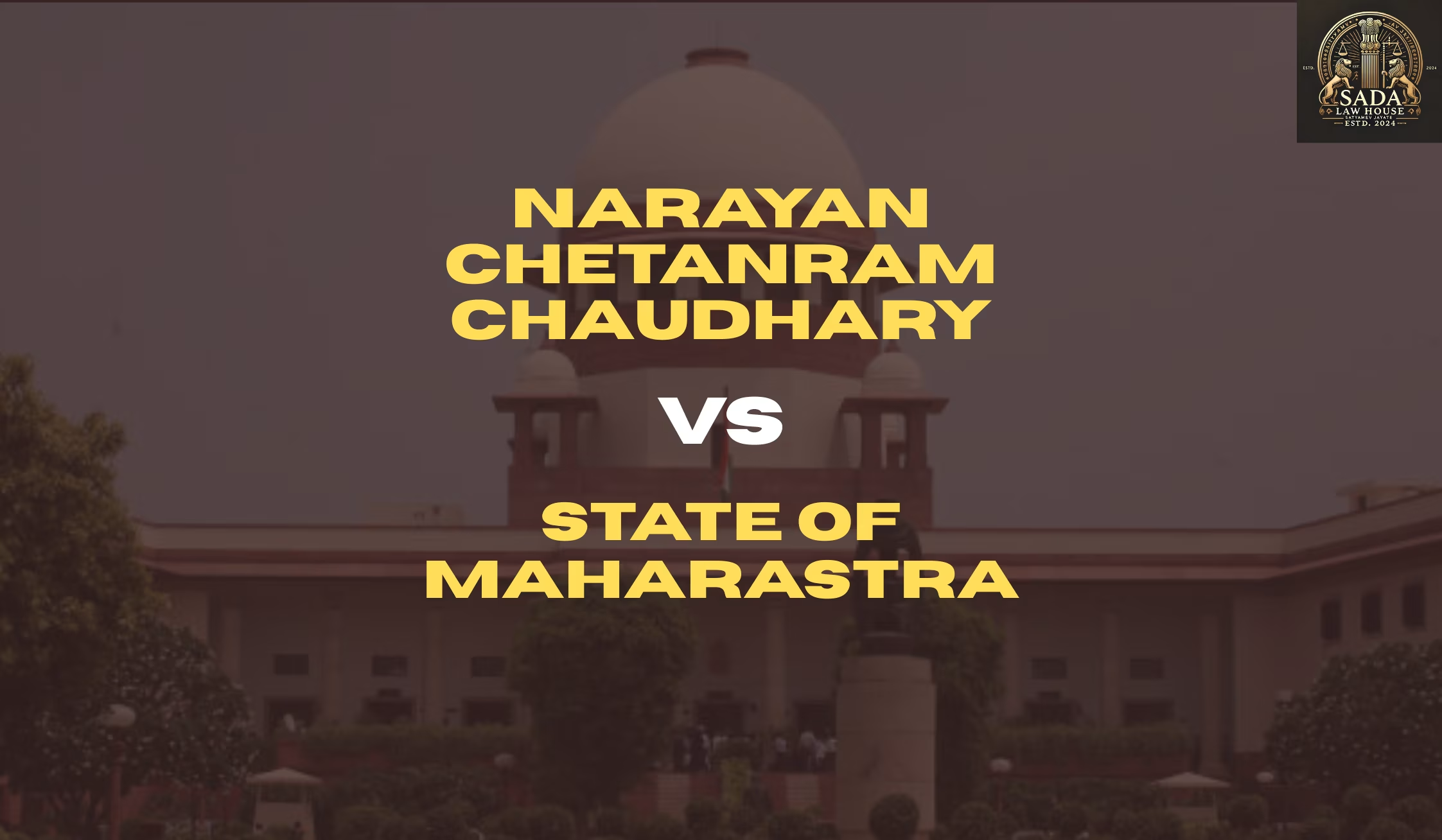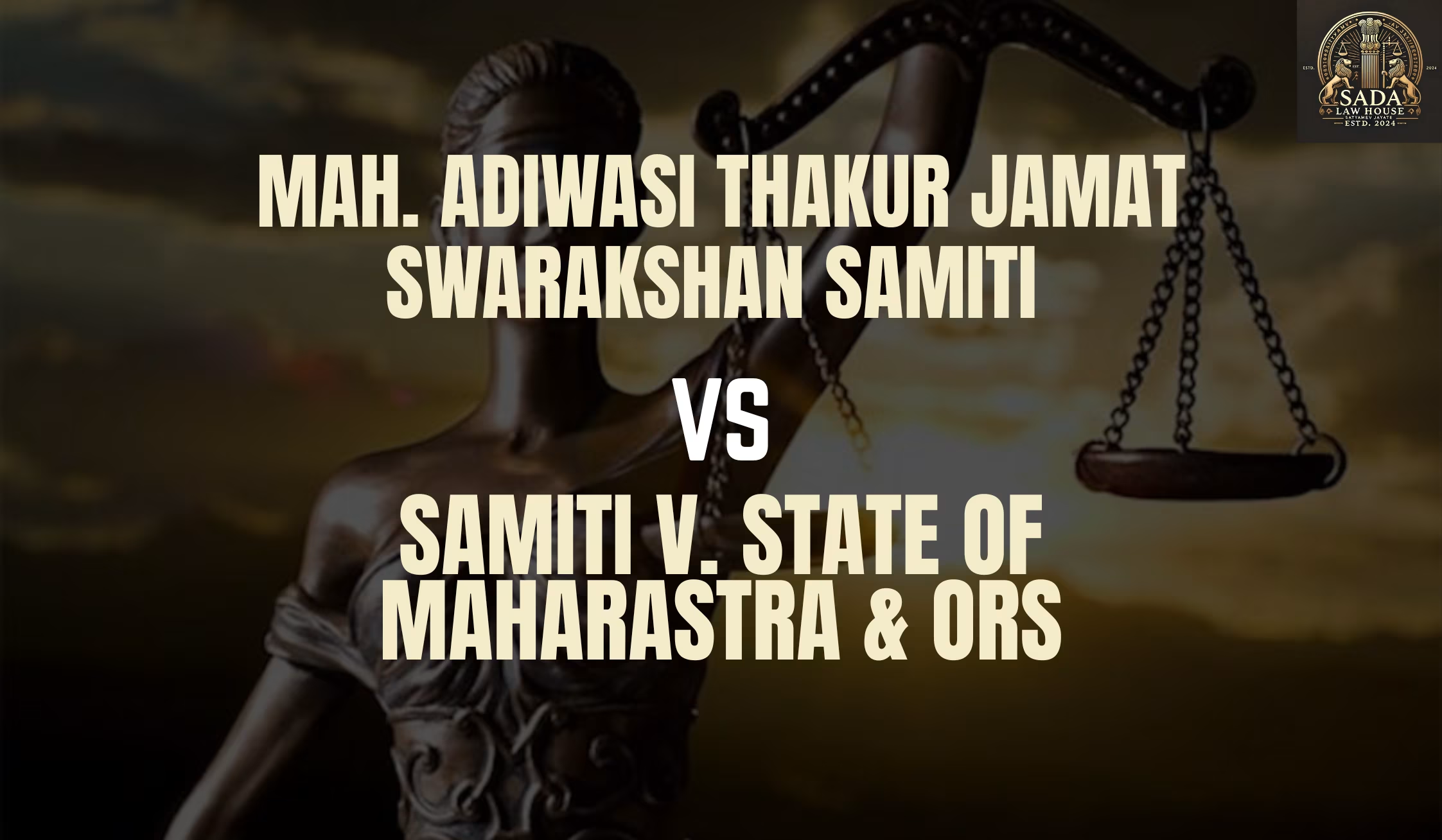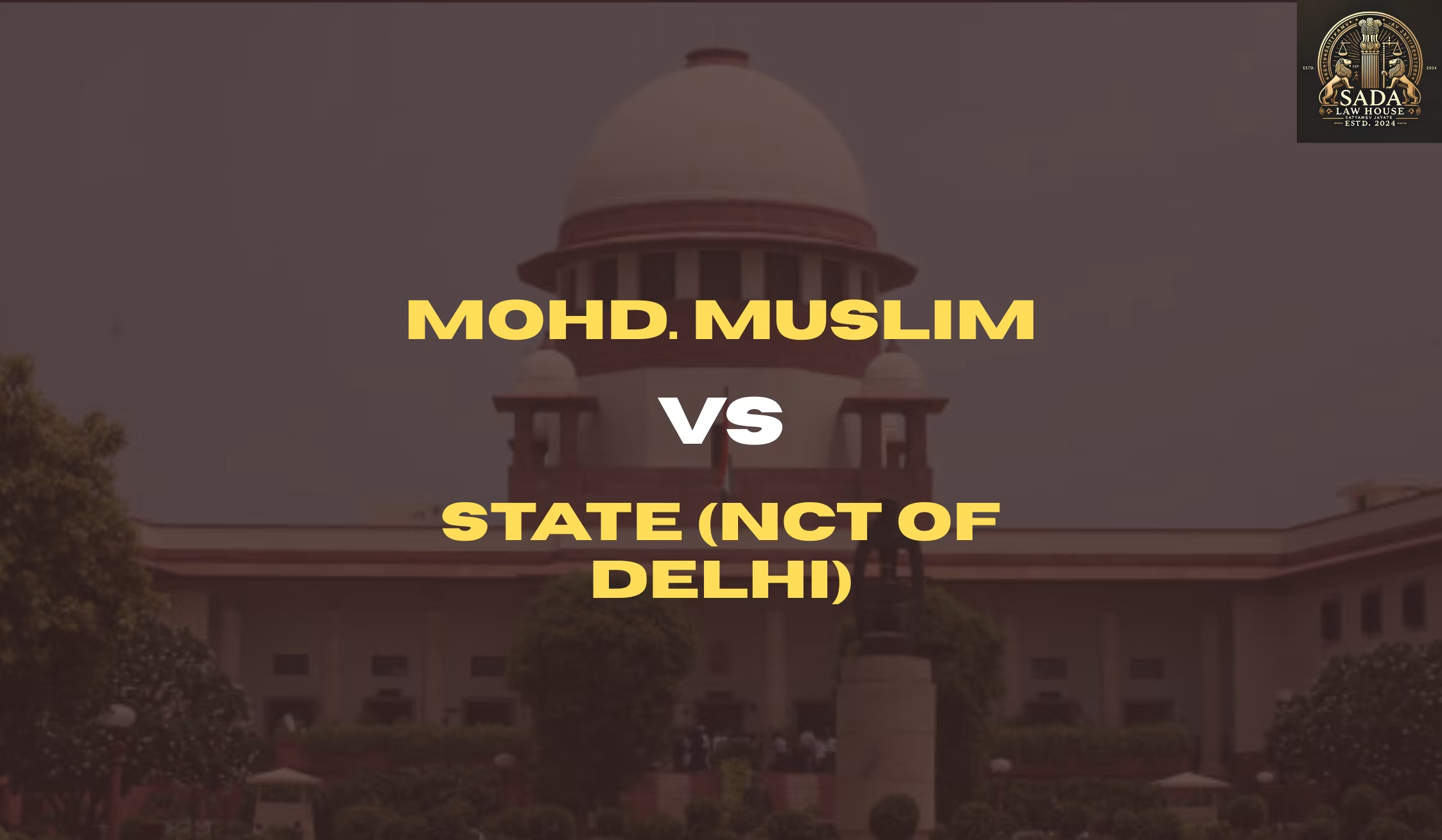Lily Thomas vs Union of India: Landmark Supreme Court Verdict That Transformed Indian Election Law
- RANI AGRAWAL
- 14 Apr 2025
Introduction
The decision of Lily Thomas vs. Union of India, decided by the Supreme Court of India on July 10, 2013, is seen as a watershed point in the evolution of Indian election law. This important decision reshaped the boundaries of political accountability and election integrity, emphasising the value of the democratic process. The court’s decision in this case effectively voided Section 8(4) of the Representation of the People Act, 1951, dismissing convicted legislators immediately upon conviction, without the advantage of a three-month leave of absence to submit an appeal. This decision demonstrated the judiciary’s dedication to maintaining constitutional principles and preventing illegal immigrants from becoming politicians.
Factual Background
The Lily Thomas case stemmed from India’s persistent issue of political prosecution. Over the years, a considerable number of politicians at both the state and national levels have faced criminal allegations, some of which are serious. Prior to the 2013 decision, Section 8(4) of the Representation of the People Act protected sitting members of Parliament and state legislatures by giving them a three-month window to launch an appeal against their guilty verdict while remaining in office.
Lily Thomas, a social activist, and Lok Prahari, an NGO, contested the validity of Section 8(4), claiming that it created an unjustified division between regular individuals and elected officials. They claimed that this clause violated the values relating to equality established in Article 14 of the Indian Constitution and jeopardised the voting process.
Legal Issues
The Supreme Court’s key legal concern was whether Section 8(4) of the Representation of the People Act, 1951 contradicted India’s Constitution, notably Articles 14 and 102(1)(e)/191(1)(e). The petitioners stated that the exemption was discriminatory and contributed to the criminalization of politics by enabling convicted members to remain in office while their appeals were pending.
The Evaluation
The Supreme Court, led by Justices A. K. Patnaik and S. J. Mukhopadhaya, issued a unanimous decision sweeping down Section 8(4) as unconstitutional. The court determined that the provision offended the principles regarding fairness before the law and equal protection under the law established by Article 14 of the Constitution. The judgement emphasised that the classification created by Section 8(4) was arbitrary and had no logical purpose.
The court exhaustively reviewed the past significance and the legislative purpose of the Representation of the People Act of 1951, ruling that the founders of the Constitution meant to preserve the purity of legislative bodies. The judgement stated that, while the Constitution allows for member condemnation under certain situations, it does not allow for any relaxation or exemption from such disqualifications based only on the filing of a petition for review.
Critical Considerations
Several major remarks made by the Supreme Court in this momentous decision deserve extensive examination.
Equality Before the Law: The court emphasised that the premise of equality before the law is a pillar of the Indian Constitution. Any legislation that creates an artificial division between ordinary persons and representatives who are elected without a legitimate foundation is unconstitutional. By permitting guilty parliamentarians to remain in office while their appeals were pending, Section 8(4) established an arbitrary classification that violated Article 14.
The Virtue of Purity of the Democratic Mechanism: The court emphasised the necessity of preserving the sanctity of the democratic process. The court stated that criminalising politics endangers the nation’s democratic foundation. Allowing convicted individuals to remain in office weakens public trust in the legislative process while also tarnishing the image of democratic organisations.
Legislative Intent and Constitutional Provisions: The court thoroughly examined the legislative motives underlying the Representation of the People Act of 1951, as well as the applicable constitutional provisions. It determined that the writers of the Constitution did not intend to introduce modifications or adaptations to the disqualifying requirements. The court noted that Articles 102 and 191 of the Constitution compel member excommunication, and any relaxation of these rules would necessitate a constitutional change rather than legislative action.
The Role of the Judicial Branch in Sustaining Constitutional Morals: The decision underscored the judiciary’s responsibility in protecting democratic norms and ensuring the rule of law. The tribunal argued that it is the judiciary’s responsibility to defend the authenticity of the democratic process and ensure that those with criminal convictions do not hold legislative posts.
Impact and Implications
The Lily Thomas judgement had an immediate and profound impact. The verdict resulted in the expulsion of several existing legislators who had been convicted of various offences. It conveyed a clear message that the judiciary would not allow any erosion of democratic and legal values. The conclusion also sparked a re-examination of the current legal framework controlling electoral disqualifications, resulting in debates about more reforms to rid the political system of criminal characters.
The decision also had substantial political and societal repercussions. It raised awareness among people about the felony nature of politics and inspired civil society to seek greater openness and accountability in the electoral process. The verdict also encouraged political parties to be vigilant when picking competitors with clean histories, resulting in a gradual drop in the number of candidates with criminal history.
Pertinent Case Laws
The Lily Thomas ruling relies on and strengthened numerous earlier Supreme Court decisions concerning election sanctions and the authenticity of the democratic process. Some of the pertinent case laws are:
Union of India v. Association for Democratic Reforms (2002): In this momentous decision, the Supreme Court required the Election Commission to establish a system of mandatory disclosure of candidates’ criminal histories, assets, and liabilities. This decision paved the way for increased transparency and accountability in the voting process.
People’s Union for Civil Liberties (PUCL) v. Union of India (2003): In this decision, the Supreme Court upheld the freedom to information as a basic right guaranteed by Article 19(1)(a) of the Constitution. The court urged the Election Commission to provide voters with the essential information on candidates’ backgrounds, allowing them to make informed decisions.
K. Prabhakaran v. P. Jayarajan (2005): In this case, the Supreme Court considered Section 8 of the Representation of the People Act of 1951, ruling that a conviction punishable by two years or more in jail would result in the elected representative’s instant disqualification. The court emphasised the importance of keeping legislative bodies free of criminal elements.
Manoj Narula v. Union of India (2014): Despite being decided after the Lily Thomas case, this decision is nonetheless pertinent because it addressed the issue of ministerial appointments with criminal past. The Supreme Court voiced worry over the increasing criminalization of politics and advised the Prime Minister and Chief Ministers to guarantee that people facing significant criminal charges are not appointed as ministers.
Conclusion
The decision in Lily Thomas vs. Union of India (2013) is a watershed moment in the evolution of Indian election law. By overturning Section 8(4) of the Representation of the People Act, the Supreme Court strengthened democratic principles of equality, integrity, and accountability. The decision was a clear call to action against the criminalization of politics, reinforcing the judiciary’s critical role in protecting democratic norms.
The repercussions of this decision stretch beyond the immediate legal and political spheres, triggering a broader societal debate about the quality of governance and the ethical standards expected of public officials. As India grapples with the challenges of electoral reform and political accountability, the principles enshrined in the Lily Thomas decision will undoubtedly serve as a guiding light for future legislative and judicial efforts to strengthen the country’s democratic fabric.
Case laws






